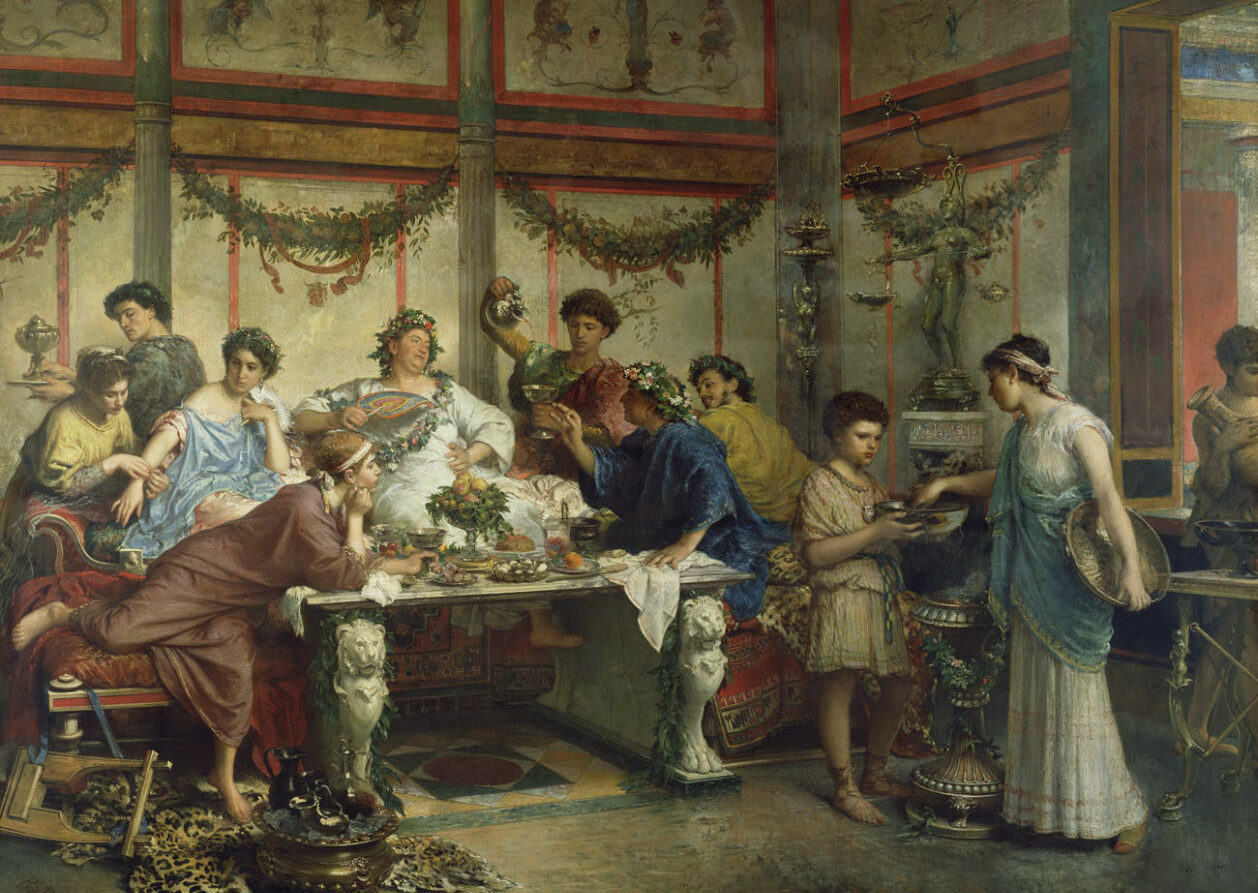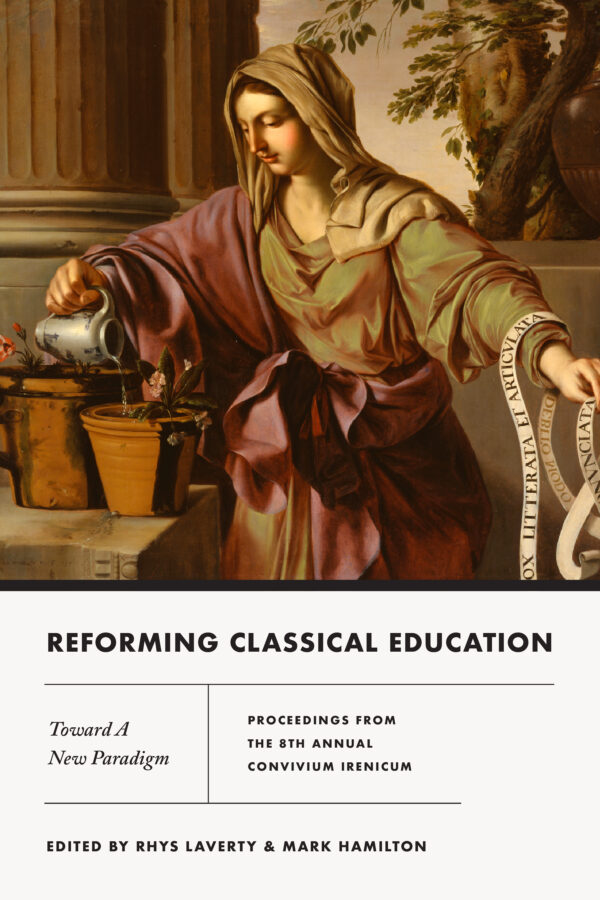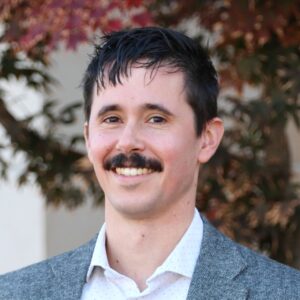Caldwell, ID. Semper Reformanda: The battle cry of the Reformation at once highlights the central principles of the ultimate authority of Scripture, man’s fallen nature, and the continual process of renewal by grace alone in accordance with God’s Word. For the Reformers, this principle underscored Scripture’s place in continually re-norming the believer to God’s standard. All accretions must be purged and deficiencies remedied. By confessing themselves bound to a standard, the Reformers submitted to an authority outside of themselves that would correct their traditions if they should deviate from that standard.
The classical education movement likewise stands under authority. Although Protestants certainly maintain their final allegiance to Scripture, to be classical also presupposes submission to a tradition. The Davenant Institute’s collection of lectures offer insight into the Protestant tradition of education in hopes of offering several correctives to the movement. They approach each subject with their usual emphasis on historical resourcement while remaining thoroughly Protestant. Thus, you will find lectures drawing heavily from Augustine, Luther, and Kuyper, as well as Plato and Pythagoras.
Reforming Classical Education begins with reminders of the chief ends of education. In the introduction, Brad Littlejohn argues for education into wisdom rather than a worldview data dump. Front Porch Readers would profit from reading this introduction in Davenant’s sample. The first chapter reminds readers that the classical vision of vocational education differs from modern pragmatism. The book also offers several admonishments to the current classical education movement, advocating the priority of the liberal arts over specific literature content (Chapter 3), a retrieval of the quadrivium for instruction in virtue, theology, and ethics (Chapters 4-5), a historical survey of early modern England with application to Latin and mixed education (Chapter 6), and an argument for less ecumenical schools and more confessional institutions (Chapter 7).
When it comes to reform of the particular means of education, the authors gladly sacrifice the sacred cows of classical Christian education. Most notably, Colin Chan Redemer takes on Plato himself, who, in Redemer’s words, “exists as an aged uncle invited to dinner out of an abundance of piety.” The philosopher “shows up, and sups, and speaks, and we nod as we studiously ignore him and return to our meal. But such uncles must be watched as they are not universally benign.” The consequences Redemer sees are severe: “At worst, compulsory reading of Plato may cause young persons to lose their faith and bring the end of the Church in our land closer.”
Given that Plato is considered by many, myself included, to be a sine qua non of classical education, this claim is quite striking. Redemer argues against his inclusion in the curriculum on two main grounds: his anti-democratic view of education and his danger to Christian faith. Plato’s anti-democratic philosophy “would violate [Christian] consciences . . . because we believe in every single human as an image bearer of the same God.” It is also un-American because we Americans “believe all are equal citizens of the same republic.” Putting his criticism more mildly at the beginning of the chapter, Redemer claims that if all Plato has to offer is an education for good citizens, he offers nothing not found in the Bible or Benjamin Franklin. How much time could we save in the school day if we only needed to teach Scripture and tax prep!
Plato’s antagonism towards democracy or egalitarianism is no secret to even casual readers of his major works, but Redemer does not address whether Plato is fundamentally correct in his assertion that not all people are equally educable. Although our Protestant and American assumptions demand we attempt an education of the masses, reality cries out. Many by nature, whether marred by deformity or sin, are not educable to the same degree. Is it kindness to insist they complete the same course of study as others far more capable? The only result can be democratization to the lowest common denominator. Plato was not alone in his suspicion of democracy. Most of the framers of the Constitution, including Hamilton, Adams, and Madison, did not esteem universal suffrage. I for one would gladly give up my “sacred right to vote” if it meant having wise and just rulers.
As for Plato’s hostility to Christianity: although the Church Fathers were certainly wary of Platonism, this was because of its similarity to Christianity, not its distinction. Thus, the argument cuts both ways. As he was for Augustine, Plato can be a steppingstone towards the truth of Christianity and the Logos incarnate, even if Platonic philosophy may also draw the weak away from the incarnate Christ and towards a disembodied rationality. We should take a critical approach to Plato which does not require a wholesale exclusion of Plato from the curriculum. Though there are errors to be rejected, the Church Fathers did not forbid the reading of Plato. While I would not encourage the adoption of Platonism as a philosophical or theological framework, there are strong affinities between Augustine and Plato in their views of illumination, knowledge, and the supreme God. We ought take what we can use from Plato without making him a master. He is an unknowing servant of Christ.
The question is also complicated by the traditional Protestant preference for Augustine over Thomas and thus a more Platonic than Aristotelian viewpoint. If there is a philosopher who should be excluded from the canon for Protestant schools, perhaps, as Luther thought, the target should lie over Aristotle rather than Plato (although many of the later reformers were far more eclectic in their use of scholastic philosophy. See Richard Muller’s Post-Reformation Reformation Dogmatics or the Davenant Institute’s own republishing of Peter Martyr Vermigli’s works.).
It is no accident that Luther was an Augustinian monk or that, per B.B. Warfield, “Augustine’s doctrine of grace triumphed over his doctrine of the church” sparking the Reformation. We cannot abstract up to heaven from the particulars, but require supernatural revelation from without to give us a vision of the good: is this Augustine or Plato? Redemer criticizes this view when he writes, “This light being kindled may happen and may not, but there is no technique by which it can be made to take place reliably and predictably. It is secret fire. There are no words to describe it; there is no guaranteed way to execute it.” Is this not the experience of Augustine in the garden? The Manichees and Neoplatonists had all failed him. He required supernatural grace from without.
Which brings us back to Augustine’s relationship to Plato. Although he is certainly critical of the philosopher, he nonetheless claims,
Whatever philosophers, therefore, thought concerning the supreme God, that He is both the maker of all created things, the light by which things are known, and the good in reference to which things are to be done; that we have in Him the first principle of nature, the truth of Doctrine, and the happiness of life … we prefer these [Platonists] to all other philosophers, and confess that they approach nearest to us.”
The errors that Augustine warns of, namely the evil of the body or rejection of the incarnation, are not the same teachings which concern Redemer. So while Augustine does not hesitate to critique Plato from the light of Scripture, he does not seem to reject him because he is anti-democratic or would be destructive to the Christian faith (excluding his theological errors).
What does the classical of a classical Christian education mean? Most would claim it does not only entail a pedagogy, but also a canon and tradition. Can a classical education be willing to excise the forefather of all philosophy merely because he is not a Christian and thus errs as a non-Christian would? Modern philosophy would be destroyed, being “a series of footnotes to Plato.” Instead, as Littlejohn’s introduction argues, are we not to train students to read the world in light of Scripture rather than offer them prepackaged worldview guides? One could quite easily make the same judgment of the entire classical canon: why do we need any of this if we have Scripture?
To say that Plato has nothing more to offer us than the Bible already teaches about virtue is to prove too much and destroy classical learning altogether. While Protestants will subordinate all earthly authorities to the teaching of Scripture, they do not reject them as ministerial or lesser authorities that teach us true things about the world. Plato and Aristotle develop, from the light of reason, a system of ethics and virtue that may help illuminate our fallen nature and the pursuit of virtue. What are practical steps to become more virtuous? The Bible teaches us our supernatural end, but it does not destroy nature or eliminate the truths that have been taught by pagans.
Perhaps it is unwise to criticize the most controversial chapter in a collection of lectures and let that stand as a review of the whole. I was challenged about the role of confessionalism in a school by Eli West’s chapter considering Kuyper and Machen. Perhaps as the Christian classical school movement grows, there is a place for schools tightly bound to a confessional standard. If the challenge of early movements is gaining followers, the obstacle of established institutions is to weed out nominal or even antagonistic participants. Confessionalism may indeed serve to deepen roots and establish Christian schools in a greater degree of specificity and excellence. But each of the other lectures rely upon the classical tradition in support of their conclusions. Nathan Johnson’s chapter on the quadrivium references Plato for the quadrivium’s role in discovering the order of the cosmos.
Any reformation requires a standard. How else could you measure progress? The standard of reviving classical learning should plainly include those revered authors who inspired and contributed to that tradition. The standard adopted by Redemer is incompatible with classical education. It is to wave a hand and say, “that was then; this is now.” If we are to evaluate the past by modernity’s conceptions of justice or democracy, little would survive. Instead, one aim of classical education is to reform our current conceptions with wisdom that has survived through cultures and over centuries. To retain ancient authors only if they entirely comport with American ideals or Christian dogma is either to submit to progressivism or fundamentalism.
To change Redemer’s analogy, perhaps we should liken Plato not to an unruly uncle to be ignored, but a great grandfather to be respected. His views are from an age not our own, and he may say disagreeable things, but no one would be gathered around the family table without him, and he is wiser than younger generations believe. We should be more willing to gather around and hear his stories recognizing that we may not be able to live the same way in good conscience, but nevertheless we have much to learn. Rejecting him means the end of a family culture.
Image Credit: Roberto Bompiani, “A Roman Feast” (late 1800s) via the Getty Museum.






